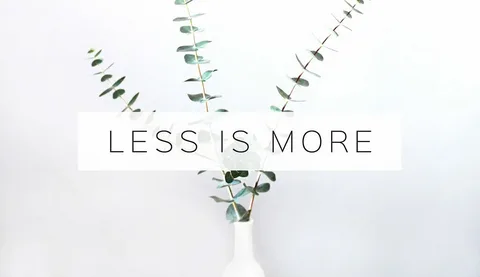In a bustling city like Chicago, clutter in the home often reflects clutter in the mind. Many residents find that adopting a minimalist approach can bring relief from the constant accumulation of possessions. For those using a donation pick-up service or arranging for junk removal, minimalism offers more than a cleaner space. It provides mental clarity, reduced stress, and a lifestyle that feels lighter and more intentional.
Understanding Minimalism and Its Appeal
Minimalism is the practice of living intentionally with fewer possessions. It emphasizes keeping what serves a purpose or sparks joy while letting go of items that do not. This approach is more than an aesthetic choice. It is rooted in the psychology of simplicity.
Research suggests that excessive clutter may trigger stress, anxiety, and even feelings of guilt. An untidy home can act as a visual reminder of unfinished tasks or obligations. Conversely, an organized environment provides peace of mind and allows the brain to focus more effectively. By embracing minimalism, individuals often report greater self-control, improved mood, and a sense of calm.
The Mental Benefits of Decluttering
The first noticeable benefit of living with less is a reduction in stress. A home overloaded with unused furniture, clothing, and other items can overwhelm the senses. Removing clutter lowers distractions and can also reduce cortisol, the stress hormone. This shift creates a calmer environment that better supports daily routines.
Cognitive clarity is another outcome. A simplified space reduces mental overload, making it easier to concentrate on tasks. Fewer items competing for attention means more energy is available for work, hobbies, and family. With distractions minimized, decision-making becomes smoother and less exhausting.
Decluttering also improves rest. Bedrooms filled with unnecessary objects can unconsciously stimulate the mind. Studies suggest that neat, uncluttered spaces promote deeper sleep. When the home feels orderly, the mind is more willing to relax.
Emotional health improves as well. Letting go of excess possessions often symbolizes letting go of past burdens. Releasing unused items can bring a sense of closure and freedom. Many people find this process uplifting, almost as if a physical weight has been lifted from their lives.
Practical Steps to Begin a Minimalist Lifestyle
Starting small is often the best way to approach minimalism. One drawer, one shelf, or one closet can become the starting point. Sorting through items room by room creates steady progress without the sense of being overwhelmed.
Donating items that no longer serve a purpose is a practical next step. Many use the guideline that if something has not been used in a year, it is ready to be passed along. This process benefits both the donor and the recipient, as items acquire new life in another household rather than taking up space or heading to a landfill.
Maintaining minimalism requires setting limits on new acquisitions. Before making a purchase, one should ask whether the item will genuinely add value to daily life. This reflection helps prevent clutter from building again.
Establishing routines for periodic review is equally valuable. Setting aside time each month to evaluate possessions ensures that items no longer in use do not pile up. These small, consistent efforts preserve the progress already achieved.
Involving others can also be beneficial. Family members and friends can provide perspective and encouragement. Professional services, including donation pick-ups and junk removal, simplify the process further by taking the physical burden out of one’s hands.
Minimalism as a Lifestyle Choice
Minimalism extends beyond the act of decluttering. It becomes a mindset that influences how one spends time, energy, and resources. By focusing on what truly matters, individuals find themselves less tied to consumer culture and more connected to experiences and relationships.
This lifestyle also supports sustainability. Donating items extends their use, while responsible junk removal ensures proper recycling and disposal. Minimalism, therefore, is not only about personal well-being but also about contributing to the greater good of the community and environment.
Minimalism offers people in Chicago a practical and rewarding way to create harmony between their surroundings and their mental state. Through thoughtful donation and responsible junk removal, residents discover that letting go of possessions can bring far more than physical space. It can foster clarity, peace, and a renewed sense of balance. For those ready to begin this journey, a trusted partner such as Junk or Donate provides the donation pick-up service and junk removal assistance needed to make the process seamless.












